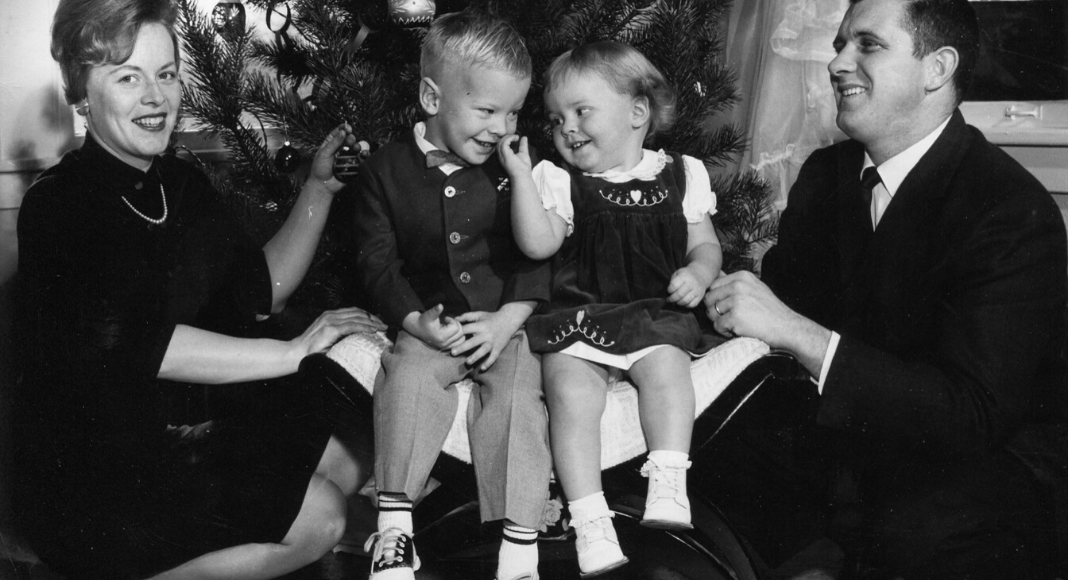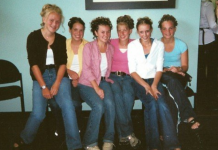 It’s the hap-happiest holiday season of all,
It’s the hap-happiest holiday season of all,
With those nosy in-laws,
And your snotty toddlers screaming on planes. . . .
It’s the most wonderful time of the year, right?
Whether hosting a festive gathering or a guest, the holidays can be both the most wonderful time of the year — and worst. A survey from 2015 conducted by Healthline, found that 62 percent of respondents described their stress level as “very or somewhat” elevated during the holidays. Among the holiday stressors noted were financial demands of the season, negotiating the interpersonal dynamics of family, and maintaining personal health habits.
What makes this season go from wonderful to worrisome?
Routines are off and we place great expectations on ourselves. This is a time when our to-do lists are long, and hours in the day are short.
We may give a lot of thought to finding that perfect gift or creating that perfect meal or gathering, but we often don’t give as much attention to our self-care. When we are overworked and exhausted, it’s difficult to present our best selves to others; particularly, those with whom we have complicated relationships.
When your guard is down, you are more likely to flip your lid over mom’s comment about overcooked brussel sprouts, than perhaps other times. Hopefully, these tips can help deck the halls with boughs of holly, and not your mom.
 Compassionately Explore Your Triggers
Compassionately Explore Your Triggers
“If it’s hysterical it’s historical.” In other words, if you are having intense feelings, there is usually an emotional memory behind it that needs exploring. Begin by thinking about how we might react in certain situations. When stressed, our amygdala, the trigger point in our brain for the fight, flight, freeze response takes over or hijacks us.
It could be helpful to visualize what happens when you are angry?
Do you:
A. Snap and yell?
B. Make a beeline for the door?
C. Freeze like a reindeer in headlights?
Holidays with family can be tough because there are many reminders and triggers of past patterns and beliefs, where emotions can be confusing. Excitement and anxiety can feel quite similar in the body. I would encourage people to get curious about what they are feeling and where it manifests in the body.
Therapists often use Cognitive Behavioral Therapy (CBT), which helps give us insight into the relationship between our thoughts, feelings, and behaviors. Getting to know our feelings and thoughts can help us prepare for what’s to come. Once we know our triggers, we can use our coping skills to respond to unpleasant or difficult situations, rather than react unskillfully.
When you’re overwhelmed, try the mindfulness concept of RAIN, popularized by my Buddhist teacher crush, Tara Brach.
R — Recognize what’s going on.
A — Allow and accept the feelings you are having. For example, if anxiety is waving “hello,” don’t be the grinch and ignore it! Say, “hello” back. Acknowledging it will give it less power.
I — Investigate with kindness. For example, is your belief rational or irrational? What do you need to feel comforted?
N — Not identify. Just because you are feeling angry, doesn’t mean you are anger. Try to see the emotional states as weather. The storm will be over soon, or at least when dinner is over.
Be compassionate with yourself. Follow Elsa’s lead and “Let it go.” Let go of any judgments around the feelings or thoughts.
Holiday Boundaries – Just Say No!
Know your limits and communicate them. Think about what uncomfortable topics of conversation might be, and ways to avoid them altogether. Or, how to change the subject in a lighthearted way. Boundaries are healthy for everyone. It is possible to be gentle and respectful and also direct.
If feeling hurt, I statements never go out of style.
For example, I felt . . . (sad, angry, confused) when you . . . (state the actual action they did). I would like . . . (what would you like them to do differently).
When we get overwhelmed, we often forget that we have the option to change how we deal with the problem. You don’t have to like what’s happening in order to accept it. My toddler is screaming the whole ride home. I want to yell, but he will parrot me, and we will both feel worse. Mothering my inner mamma, I tell myself, “Deep breath, Jill.” Now, I can remember to validate his feelings and redirect him by playing that annoying Elmo song. That is Radical Acceptance. We can’t control others and what happens 100%, only our relationship and response to it.
Compassion Toolkit
Have realistic expectations. You can’t make like a Christmas tree and leave. The laundry still needs to get done. It’s also important to be prepared for some sadness and other emotions.
Yes, the idea of the holidays can bring nostalgia and joy, but not for everyone. Forced happiness to conform to the “spirit of the season,” or other people’s expectations, puts pressure on us. Don’t be afraid to vent to a trusted family member or friend. If you are feeling like this might be more serious than the holiday blues, please get help. There are always people to talk to via mobile crisis.
Make your own happiness and traditions. If grieving a loss, how would your loved one want to be honored or celebrated by you? If that means following family tradition, or trying something new, do what feels authentic to you and brings comfort and joy. Several studies show that volunteering has been proven to minimize depression, improve health and longevity, as well as social relationships.
Don’t compare and despair. If you find yourself gawking on social media and feeling worse about your life, you can STOP! Disconnect from electronics for a bit. See if you can, and for how long, try it as a family competition.
It is important to self-care! Take a hot bath, get your nails done, color. If triggered in the moment, you can use some diaphragmatic breath, or belly breathing, which has been scientifically proven to calm the inner monster. You could try some controlled breath by breathing in your nose to the count of three, hold it, slowly release to the count of five or more. Longer exhalations help quell anxiety.
Other coping skills could include positive affirmations like Stuart Smalley. Guided visualizations (use all your senses to put yourself in a safe, comforting place), doing a quick body scan or a self-check-in. Stepping outside to change perspective and look at nature, could help. Exercise, go for a walk with family, or alone.
Most of all, go easy on yourself. If you are hosting, allow yourself to serve store-bought cookies if that gives you time to take a walk in the afternoon.
My colleague was complaining that she was behind and worried that she wouldn’t get everything done. her friend said, “It will come again next year, and you’ll get another shot at it.”
What a great perspective.













